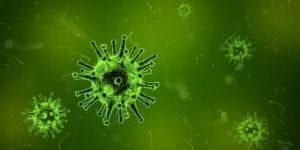The world is experiencing an unprecedented time in the medical realm with the rapid spread of COVID-19, a novel coronavirus. It may be difficult to understand how coronavirus may impact previous diagnoses, which can cause an increase in anxiety. Here are some articles that may offer some assistance during this time.
For those with cancer diagnoses, or those with family members who have cancer, one of your main questions may be: “What is the interaction between COVID-19 and cancer?” While there is still much to be done, oncologists are going to play a large role in optimizing patient health and safety.
To effectively stem the flow of COVID-19 while protecting patients, it is necessary to understand both the current situation and the potential future impact.
Current Situation
Currently, there is a low incidence of COVID-19 and cancer. In fact, Steve Pergam from the infection prevention program at Seattle Cancer Care Alliance has stated:
“So far, the cancer community hasn’t been profoundly affected, but we expect – and must prepare for – cases to start coming in more frequently.”
Up to 40% of patients with cancer have experienced anxiety, depression, or frustration over their diagnoses. So with uncertainty about how COVID-19 will progress, it makes sense that patients and their families may experience heightened anxiety during this time period.
COVID-19 and Cancer: The Facts
Because of the sudden surge of COVID-19, researchers are unable to say with certainty that it affects any one population more than another. For this reason, the connection between cancer and COVID-19 contraction remains unclear.
However, director of the Rutgers Cancer Institute’s lymphoma program Andrew M. Evens does explain that those with cancer would most likely have a more severe reaction to coronavirus. This is especially true for those undergoing chemotherapy, who have received bone marrow transplants, or who have a type of lymphoma or leukemia. In particular, these result in a weakened immune system.
Immunocompromised or immunosuppressed individuals are thought to be a higher-risk group for contracting COVID-19. Although a research paper in The Lancet showed a higher incidence of harm from coronavirus for those with cancer, the small sample size leaves researchers with an unclear understanding. Regardless, Pergam notes that:
“Those who have comorbidities are at an increased risk from this infection.”
How Oncologists Can Help
In some sense, the field of oncology has already taken a variety of measures related to COVID-19 and cancer. These include ASCO transitioning into a virtual conference, the American Association for Cancer Research canceling its conference, and limiting staff travel. However, these changes are mostly on an organizational level. Oncologists are uniquely poised to assist patients on a more personal level.
People with cancer can also get COVID-19, though it may occur at a slower or later rate than the general population. This is because those with cancer diagnoses, especially those in active treatment, often spend more time at home to protect their health. Some clinicians advise that any non-essential appointments related to cancer should be rescheduled.
Managing Anxiety
Tina Tan M.D., an infectious disease attending, states that one action oncologists can take is referring especially anxious patients to medical psychologists to help find effective ways to cope with anxiety. If you are experiencing a high level of anxiety related to your previous diagnosis, consider reaching out to a psychologist who may be able to assist you via telemedicine.
Oncologist Paul A. Volberding also expounds on the importance of anxiety management. With the spread and uncertainty surrounding COVID-19, he shares that it is natural to be anxious. But oncologists, he notes, also have an important duty:
“We should reassure patients that not every symptom they have is going to be from COVID-19.”
Additionally, despite the rising cases, recoveries, and deaths by coronavirus, some healthcare providers state that the flu is still a greater risk to those with cancer. Doctors recommend that those with cancer receive a flu vaccination.
Increasing Patient Communication
Although the best way to flatten the curve is through social distancing, oncologists and healthcare providers should maintain communication with patients. This has two main benefits. First, it can reduce patient anxiety and promote education. Next, it can keep individuals who don’t need assistance from coming into the doctor’s office, which would potentially expose them to the virus.
To Tan, this means setting up specific phone lines or email communication designed to answer COVID-19 questions. Doctors can listen to symptoms and advise whether or not patients should visit the ER. Those with a sore throat, runny nose, or slight cough should stay home. However, if any of these are accompanied by a fever, worsening symptoms, or general muscle fatigue, it may signify an issue.
Cancer centers and other medical providers can also use social media to share information on COVID-19 testing. Although testing is not widely available at this time, those with the following should pursue treatment or testing if possible:
- Anyone with cancer who is experiencing severe symptoms, such as diarrhea, a dry cough, or a sore throat
- Because those with weakened immune systems may present with different symptoms than others, a lack of a fever is not always a sign that someone with cancer does not have COVID-19.
- People with neutropenia who later develop a fever. Learn more about neutropenia here.
Next Steps for COVID-19 and Cancer
While it may seem like a simple solution, social distancing is an effective way to protect oneself from contracting COVID-19. This means avoiding large gatherings, following the directives set out by the CDC and WHO, and staying home if you feel sick.
Tan also advises that patients and medical providers focus on:
“hand hygiene, cough and sneeze etiquette, not touching your face.”







